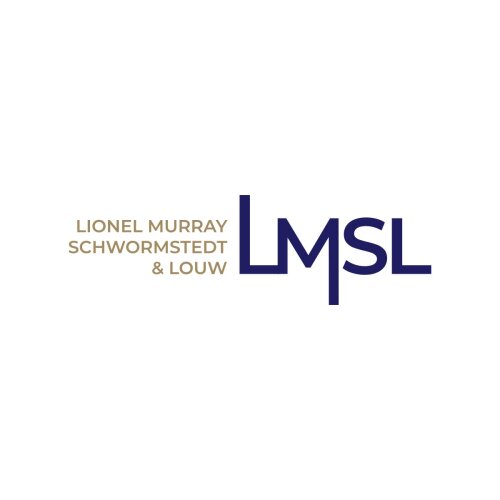Best Space Law Lawyers in Cape Town
Share your needs with us, get contacted by law firms.
Free. Takes 2 min.
List of the best lawyers in Cape Town, South Africa
About Space Law in Cape Town, South Africa
Space Law in Cape Town, South Africa, encompasses the regulations and international agreements that govern activities in outer space. South Africa, being an active participant in the global space industry, adheres to various international treaties and conventions that lay the framework for Space Law. Cape Town, as a hub for space research and industry, plays a critical role in enforcing these laws. The local institutions, including universities and government agencies, contribute significantly to the development and application of Space Law in the region.
Why You May Need a Lawyer
There are several scenarios where individuals or businesses might require legal assistance in the realm of space law. These include:
- Launching a satellite: Businesses or entities intending to launch a satellite may need legal expertise to navigate the complex licensing and regulatory requirements.
- Space tourism: Individuals participating in or offering space tourism services may require legal advice concerning liability and contractual obligations.
- Property rights in space: As space mining and colonization become more prevalent, legal guidance is necessary for issues related to property rights and resource ownership in outer space.
- Intellectual property: Innovations and tech developments in space technology often lead to concerns about intellectual property rights.
- International collaboration: Companies collaborating with international agencies need to comply with cross-border legal requirements, often requiring expert legal intervention.
Local Laws Overview
South Africa's adherence to international space treaties forms the foundation for its domestic space laws, which are particularly relevant to practitioners and businesses in Cape Town. Key aspects include:
- The necessity for proper authorization for satellite launches, as outlined by the South African Council for Space Affairs.
- Compliance with the Outer Space Treaty and other relevant international agreements ratified by South Africa.
- Guidelines on liability for damage caused in outer space, as dictated by the Convention on International Liability for Damage Caused by Space Objects.
- The regulation of telecommunication and broadcasting satellites, governed by South Africa’s Electronic Communications Act.
Frequently Asked Questions
What is Space Law?
Space Law is a body of laws, agreements, and treaties that govern human activities in outer space, focusing on both international and local regulations.
Does South Africa have a national space policy?
Yes, South Africa has a National Space Policy and a National Space Strategy that guide the country's activities and objectives in space exploration and industry.
What are South Africa's key international commitments in Space Law?
South Africa is a signatory to major space treaties, including the Outer Space Treaty, the Rescue Agreement, the Liability Convention, and the Registration Convention.
How does international law influence Space Law in South Africa?
International treaties serve as the fundamental framework for South Africa's Space Law, with national legislation ensuring compliance with these obligations.
Who regulates space activities in South Africa?
The South African National Space Agency (SANSA) oversees space activities, with the South African Council for Space Affairs playing a regulatory role.
Can private companies engage in space exploration in South Africa?
Yes, private companies can engage in space activities, provided they comply with national and international regulations and receive the necessary authorizations.
Are there laws concerning space debris in South Africa?
While no specific national legislation explicitly addresses space debris, South Africa abides by international guidelines and standards regarding space debris mitigation.
What legal protections are there for intellectual property in space technology?
Intellectual property rights related to space technology are protected under South Africa's existing intellectual property laws, adhering to international agreements.
Is space tourism legally supported in South Africa?
While space tourism is not explicitly addressed, existing aviation and liability laws will likely influence the legal landscape concerning space tourism.
How can one become a Space Lawyer in South Africa?
Individuals interested in space law typically pursue a law degree, followed by specialization through courses or work experience related to space law and policy.
Additional Resources
Individuals seeking further information or assistance can explore the following resources:
- The South African National Space Agency (SANSA)
- The Department of Trade and Industry (DTI) for policy-related queries
- The South African Council for Space Affairs for regulatory information
- Local universities offering specialized courses in space law
Next Steps
If you require legal assistance in space law, consider the following steps:
- Determine the specific nature of your legal needs, such as licensing, contractual issues, or international collaboration.
- Consult with a lawyer specialized in space law or related fields who can provide tailored advice.
- Reach out to local legal associations or networks that focus on space or international law for further guidance.
- Engage with relevant government bodies or agencies to clarify regulatory requirements.
Lawzana helps you find the best lawyers and law firms in Cape Town through a curated and pre-screened list of qualified legal professionals. Our platform offers rankings and detailed profiles of attorneys and law firms, allowing you to compare based on practice areas, including Space Law, experience, and client feedback.
Each profile includes a description of the firm's areas of practice, client reviews, team members and partners, year of establishment, spoken languages, office locations, contact information, social media presence, and any published articles or resources. Most firms on our platform speak English and are experienced in both local and international legal matters.
Get a quote from top-rated law firms in Cape Town, South Africa — quickly, securely, and without unnecessary hassle.
Disclaimer:
The information provided on this page is for general informational purposes only and does not constitute legal advice. While we strive to ensure the accuracy and relevance of the content, legal information may change over time, and interpretations of the law can vary. You should always consult with a qualified legal professional for advice specific to your situation.
We disclaim all liability for actions taken or not taken based on the content of this page. If you believe any information is incorrect or outdated, please contact us, and we will review and update it where appropriate.









